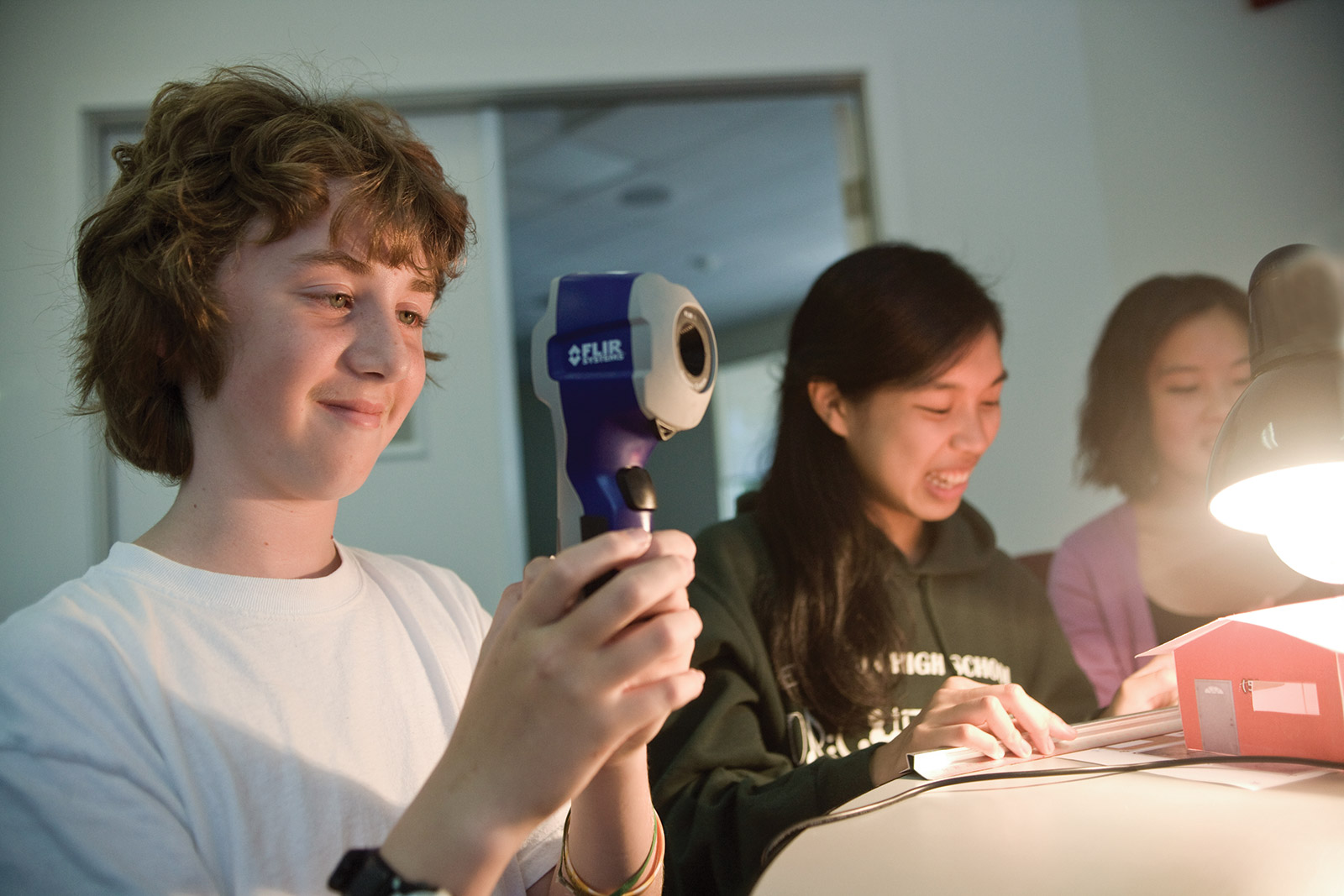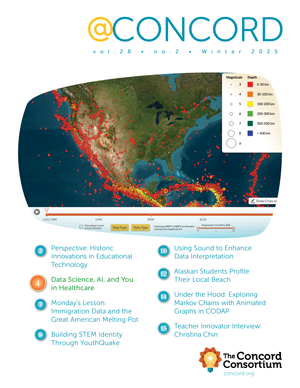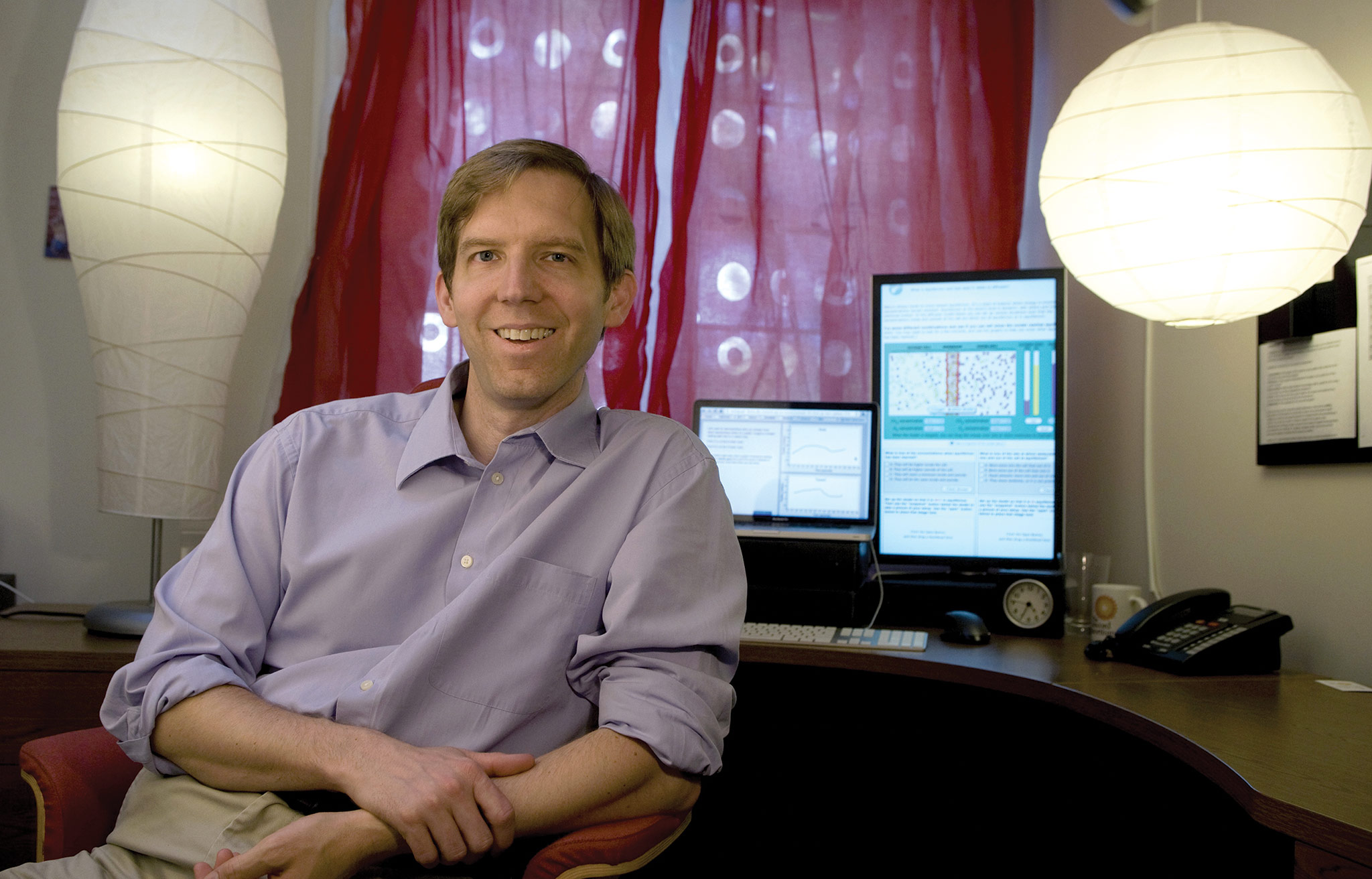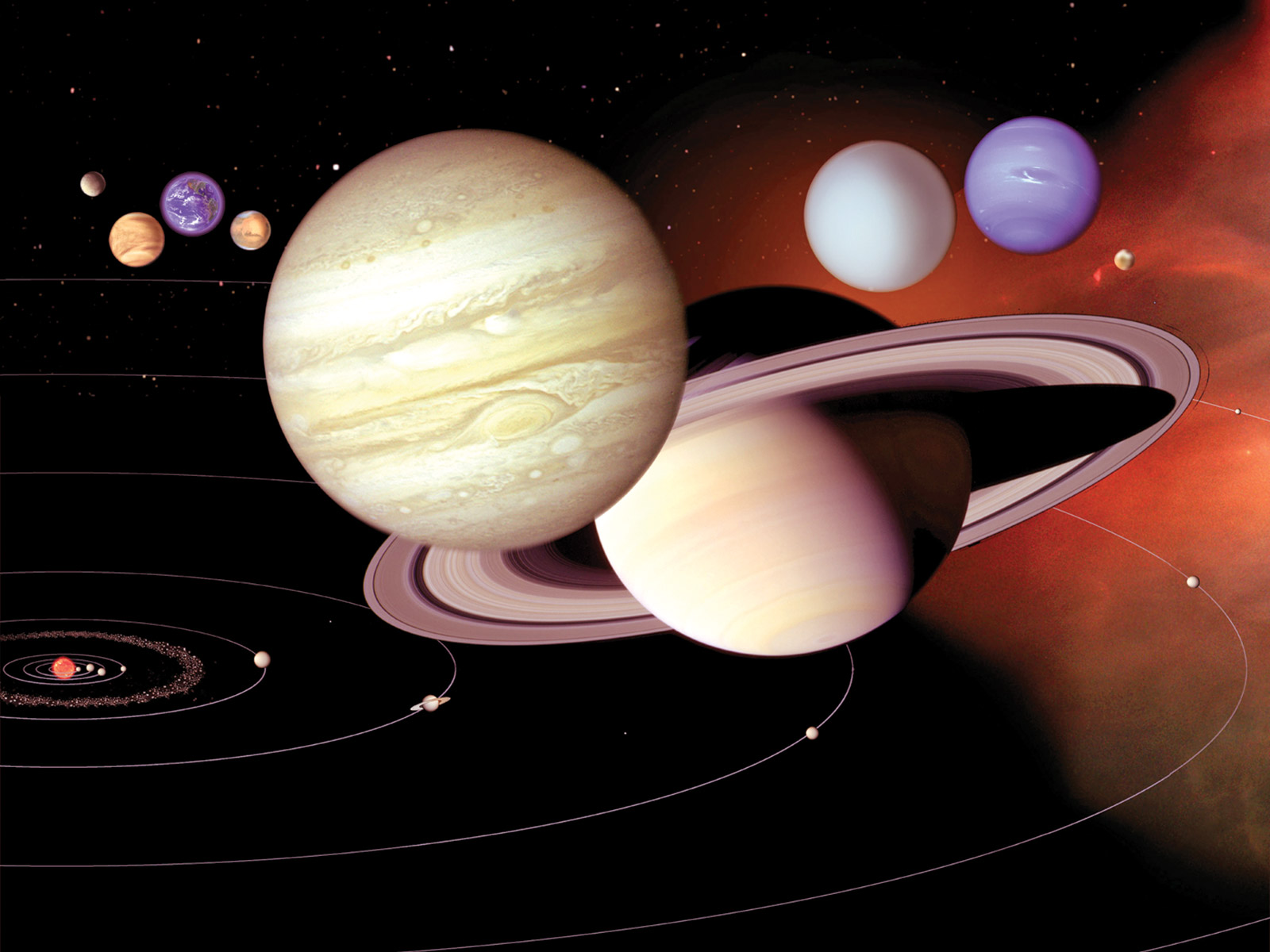Engineering Energy Efficiency, Are Students Ready for Evolution?, Probes Give Students a Sixth Sense, and more in Fall @Concord
Perspective: Defining a Deeply Digital Education
This issue of @Concord marks some significant occurrences at the Concord Consortium. This summer our Molecular Workbench software received the Science Prize for Online Resources in Education, a prestigious award given to the top science education efforts across the country. This summer also marked the 30-year anniversary of the invention of educational probeware by Bob Tinker and Stephen Bannasch, technology that has ignited a revolution in science education by bringing real-time data collection to schools. These innovations represent two of the many important ways in which technology can transform learning.
Engineering Energy Efficiency with a Green Building Model Kit
Precollege engineering education is increasingly recognized as an indispensable part of STEM education. The National Research Council’s conceptual framework for new science education standards has concluded that engineering should be incorporated into American science education.* When the new standards are finally made, thousands of science teachers will be charged with teaching engineering — a subject that may be new to many.
Monday's Lesson: Asking Big Questions about Our Solar System
Middle school students are fascinated by the solar system. It evokes big questions about the sky, the planets, and the earth’s place in it. Help your students uncover the link between the math and the science with "Our Solar System," which uses NetLogo models to explore the orbital periods of the six inner planets.
Beginning with Big Ideas: Are Students Ready for Evolution?
Although we originally proposed the term “Evolution Readiness” to the National Science Foundation in 2008, it still took a team of scientists, curriculum developers, measurement experts, and software developers from the Concord Consortium and Boston College several months to define readiness when we began the project. Three years later, we now have a better idea of what fourth graders are ready to learn—and what’s hard for them.
An Example of Deeply Digital Curricula: Detergents
Remember those devastating images of the burning Deepwater Horizon and satellite pictures of the huge oil slick in the Gulf of Mexico? Photos of volunteers gently bathing oil-soaked marine birds were heartrending. Those images grabbed our attention and captured the interest of science teachers and students alike. That kind of engagement is invaluable as an entry point to discovering the deeper scientific concepts of a whole suite of related ideas. The Gulf oil spill can launch students on a deep — and deeply digital — learning adventure.
Atoms, Molecules, and More with the Molecular Workbench
What happens at the atomic level is difficult for students to imagine and molecular literacy focuses on unfamiliar concepts. Due to the lack of teaching tools in the past, these concepts were often taught as factual knowledge that students had to accept and memorize. Fortunately, computer technology has provided a revolutionary way to teach them.
Probes Give Students a Sixth Sense
How can we teach about something students cannot see, touch, smell, taste, or hear? Use probeware to make any one of these as immediate and intuitive as something they can sense directly.
Innovator Interview: Robert Tinker
An interview with Robert Tinker, the founder of Concord Consortium. Learn how he ignited the field of Probeware, his hope for educational technology, how the Concord Consortium started, and more.



